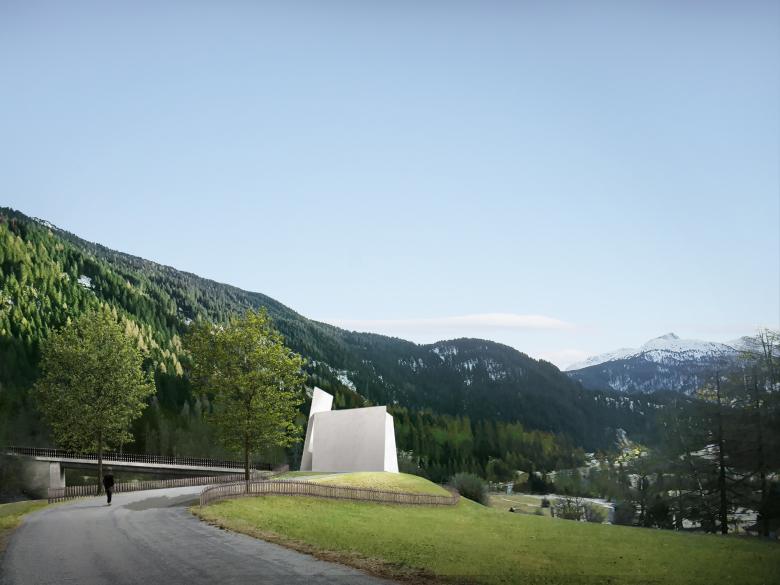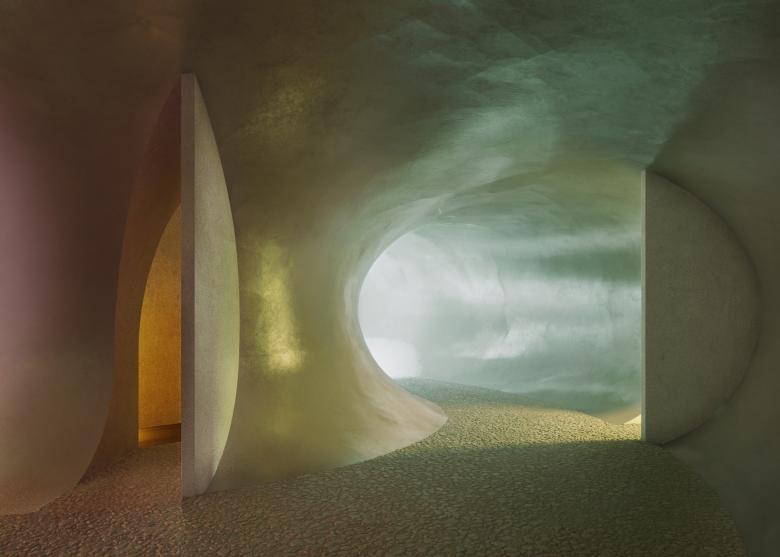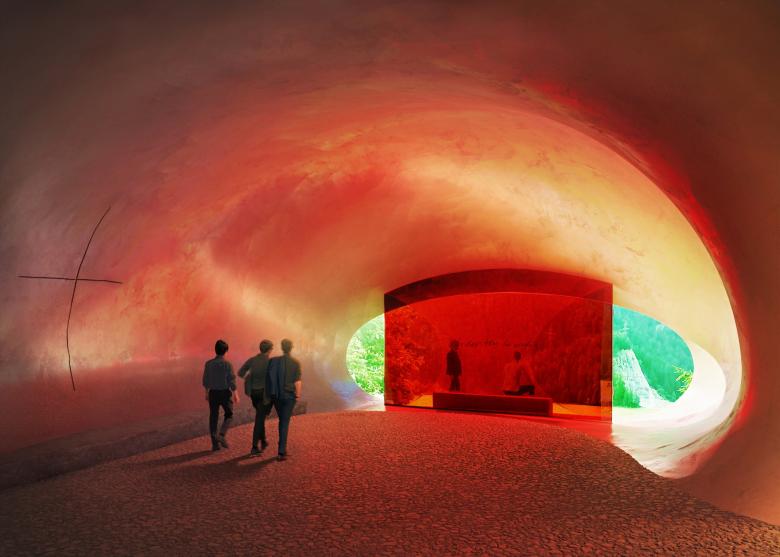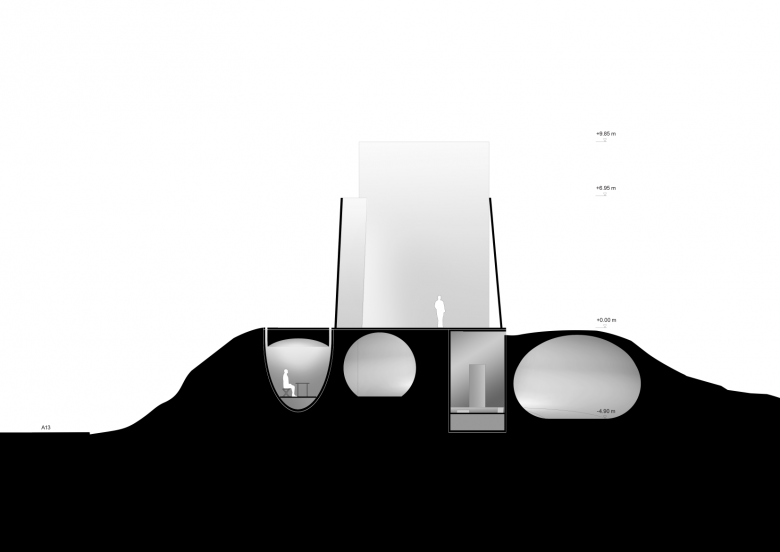Herzog & de Meuron Unveils Autobahn Chapel
The concept design for the Autobahnkirche along the A13 motorway near Andeer, Switzerland, features an above-ground chapel and three smaller chapels built into an earth berm.
According to a statement from the Basel practice of Jacques Herzog and Pierre de Meuron, "the development of the architectural concept acquired shape in the course of several meetings and fruitful, candid conversations with representatives of the community and the pastor of Andeer." In that time the firm even considered the chapel being built across the motorway to act as a bridge (an existing bridge made that unnecessary). The resulting form consists of four leaning walls defining the above-ground chapel, sitting atop a mound of earth housing three smaller chapels.
The project is heavily influenced by its site next to the motorway. The architects describe their concept design as "very introverted": "The deeper you go, the weaker the sounds from the motorway and the stronger the sound of your own footsteps. Finally, when you reach the last room, strong daylight streams into the heart of the chapel and you see a panoramic view of the landscape, the village, and the lush green meadows and woods."
Herzog & de Meuron use the phrase "seeing through the ears" to describe the concept. Passage through the progressively quieter spaces actually resembles the ear canal, though it culminates in a highly visual space: a panoramic view of the landscape beyond a pane of red-tinted glass.
The creation of an autobahn chapel has many precedents in Germany and Switzerland. One that springs to mind is the 22-year-old Place for Meditation next to a rest stop near the Gotthard Pass; designed by artist Johann Bossart with architects Guignard Saner, the space is calm, quiet respite from the autobahn and consumer-based rest stop.





